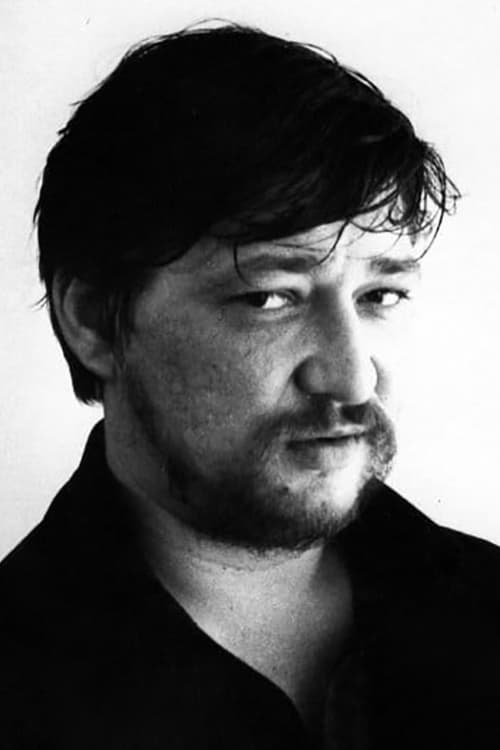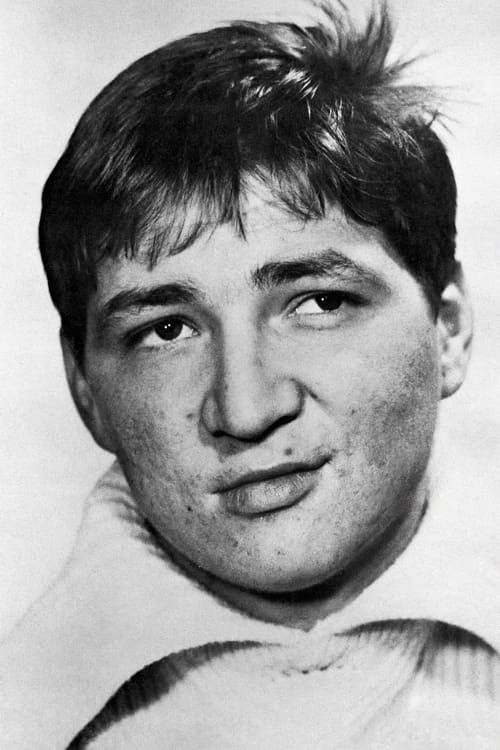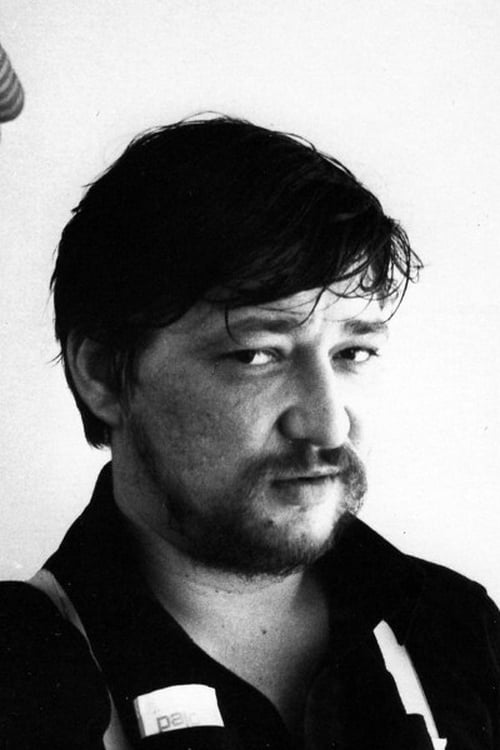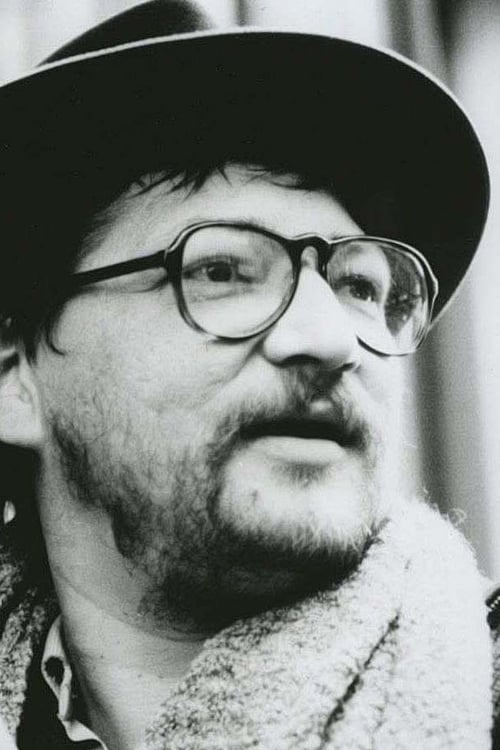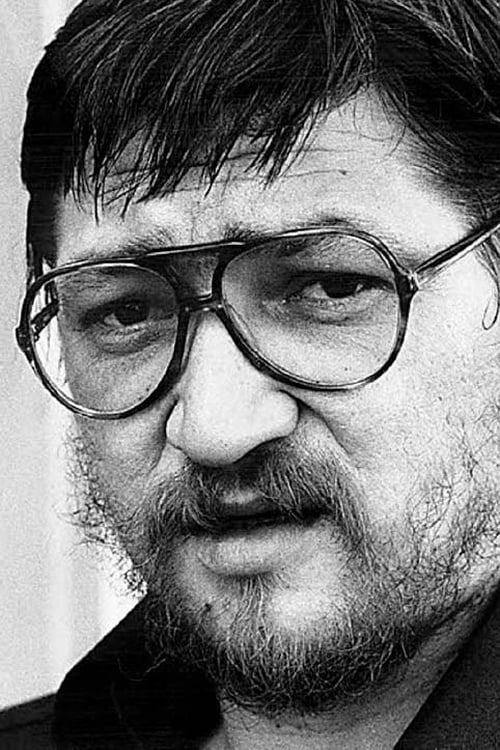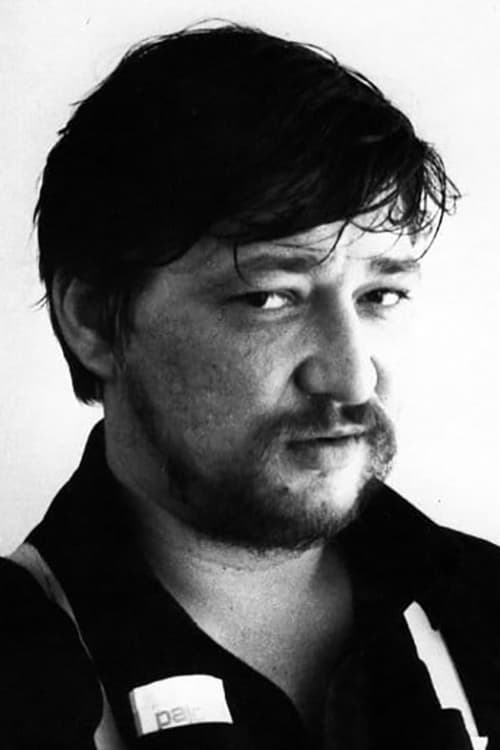
Original Story
Peter von Kant, a successful, famous director, lives with his assistant Karl, whom he likes to mistreat and humiliate. Through the great actress Sidonie, he meets and falls in love with Amir, a handsome young man of modest means. He offers to share his apartment and help Amir break into the world of cinema. Several months later, Amir becomes a star. But as soon as he acquires fame, he breaks up with Peter, leaving him alone to face himself.

Self (archive footage)
Born in Berlin in 1896, Lotte Eisner became famous for her passionate involvement in the world of both German and French cinema. In 1936, together with Henri Langlois, she founded the Cinémathèque Française with the goal of saving from destruction films, costumes, sets, posters, and other treasures of the 7th Art. A Jew exiled in Paris, she became a pillar of the capital's cultural scene, where she promoted German cinema.
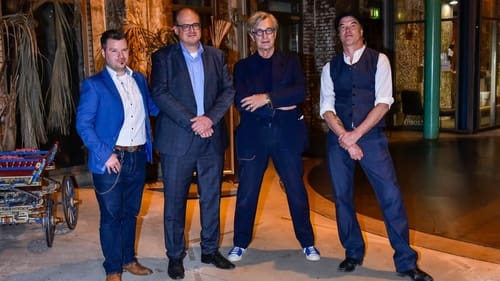
Self (archive footage)
"Wings Of Desire" and "Buena Vista Social Club", "Paris, Texas" and "The State Of Things": Wim Wenders is considered one of the pioneers of New German Cinema and one of the most important and influential representatives of contemporary cinema. With never before shown archive material and extraordinary encounters with companions and contemporary witnesses such as Francis Ford Coppola, Willem Dafoe, Andie MacDowell, Hanns Zischler, Patti Smith and Werner Herzog, this documentary provides unique insights into the life and work of one of the most multifaceted artists of our times. Renowned documentary filmmaker Eric Friedler ("It Must Schwing. The Blue Note Story") and his co-director Andreas Frege were given the exclusive opportunity to portray Wenders for this film. From Dusseldorf to Paris, and all the way to the desert of Texas, the film traces iconic locations and decisive moments in Wenders' work as director, producer, photographer and author.

Himself
A portion of the Emmy award-winning documentary on the great Life Magazine photojournalist, Alfred Eisenstaedt (Eise). He photographed for over 50 years and was doing well in prewar Germany until he had to leave. This is him returning to Germany in 1982 to experience the country again and see how he felt about the new Germany. In making this film, viewers get a sense of the uniqueness of his character.
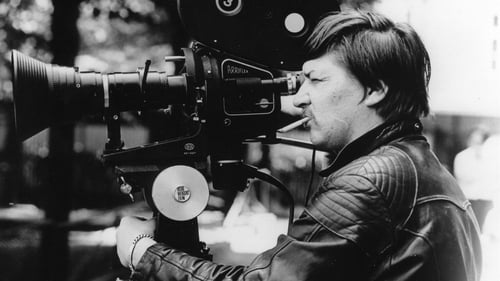
Himself
A film portrait of the influential Bavarian actor, director and screenwriter who publicly confessed
his homosexuality.

Rainer Werner Fassbinder was probably Germany’s most significant post-war director. His swift and dramatic demise at the early age of 37 in 1982 left behind a vacuum in European filmmaking that has yet to be filled, as well as a body of unique, multi-layered and multifarious work of astonishing consistency and rigour. From 1969 onwards, Danish director and film historian Christian Braad Thomsen maintained a close yet respectfully distanced friendship with Fassbinder. Fassbinder – Lieben ohne zu fordern is based on his personal memories as well as a series of conversations and interviews he held with Fassbinder and his mother Lilo in the 1970s.

Theatre Play
Romi (Gabriela Mícová), a prostitute, is anything but successful at her job: she is of far too gentle a nature for her clients. The more obstinately she is pushed to the streets by her pimp Franz (Stanislav Majer), the closer she is to a complete breakdown. One day Romi is addressed by a property speculator referring to himself as a "wealthy Jew" (Martin Finger). He does not demand any sexual services of her. He satisfies himself with Romi telling him stories, for which he lavishly rewards her. However, no one shares the sudden happiness with Romi. Her work-mates and current clients turn their backs on her, as does Franz, with whom Romi is in love. The whole story takes place in the setting of a dilapidated city, during the clean-up of which politicians openly split their profit with speculators and lobbyists, all under protection from the police.

Self
A documentary that focuses on the making of Rainer Werner Fassbinder's "The Marriage of Maria Braun".

Self (archive footage)
Travelling between Germany, France and Morocco, Viola Shafik reconstructs and deconstructs the unknown life story of El Hedi Ben Salem through interviews with his companions and family members as well as archive material. With openness and slight naivety the interviewees explain how “Ali” became an oriental object of projection for the Fassbinder group, while El Hedi Ben Salem, the human being, was overlooked in order to establish the foreigner as “other.” A no-frills examination of a piece of German and Munich film history.
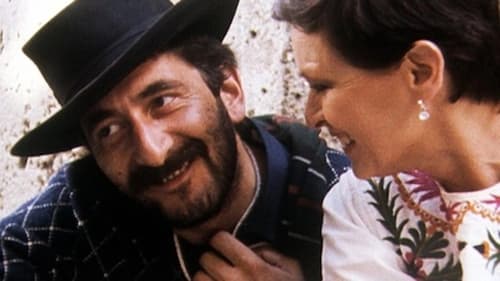
Self (archive footage)
When director Daniel Schmid grew up, his parents ran a hotel in the Alps, and this singular setting was to influence his film. Rather by coincidence he came to Berlin in the early 1960s and became part of the new German wave. Schmid worked with, among others, Wenders and Fassbinder, for example as an actor in Wender’s The American Friend. He met Ingrid Caven, who was to play a diva in several of his films. This is a documentation of a part of modern European film history and a good analysis of artistry and how it corresponds to the individual behind the camera. A wealth of archival footage brings us close to many directors and actors in Schmid’s circle. If you’ve never seen a Daniel Schmid film, you are sure to want to after watching this portrait of his life.

Self (archive footage)

Self (archive footage)
What is the future of cinema? In 1982, in Cannes, Wim Wenders invited many movie makers to answer this question. 26 years later, the question remains, but Wenders is now on the other side of the camera.

self
The filmmaker Albert Serra and producer Àngel Martin present their last work on the web dedicated to the club Atlètic Club Banyoles and the authentic football.

Self
Though he never actually worked in Hollywood, Rainer Werner Fassbinder, who died in 1982 at the age of 36, was influenced greatly by Amercian studio films of the 1950s and the convention of melodrama (the link most often mentioned is Douglas Sirk).
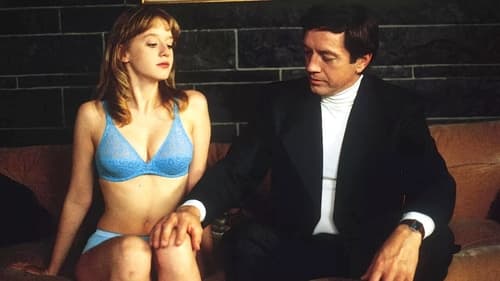
Writer
In 1970s Germany, Leopold, a 50-year-old businessman, picks up and seduces 20-year old Franz, who swiftly moves into his bachelor pad. Their cozy relationship soon sours as Leopold turns cranky and argumentative. When Franz's buxom blond girlfriend surfaces, and then Leopold's elegant and enigmatic ex, things get funnier, steamier and a lot more complicated.

Self (archive footage)
A documentary about the life and work of director Rainer Werner Fassbinder.

Self
Documentary about the shooting of BOURBON STREET BLUES.

A soldier and a beautiful blonde on a train to Harrisburg.

Documentary about German director Rainer Werner Fassbinder, during the time of filming "Querelle." Features an interview with Fassbinder only ten hours before his death.
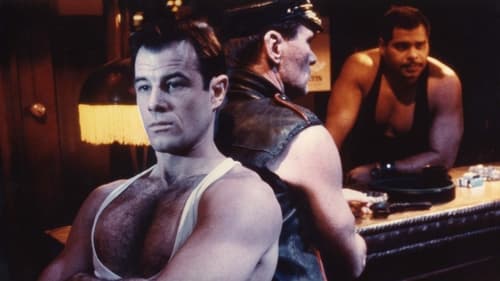
Director
A handsome Belgian sailor on shore leave in the port of Brest, who is also a drug-smuggler and murderer, embarks upon a voyage of highly charged and violent homosexual self-discovery that will change him forever from the man he once was.

Screenplay
A handsome Belgian sailor on shore leave in the port of Brest, who is also a drug-smuggler and murderer, embarks upon a voyage of highly charged and violent homosexual self-discovery that will change him forever from the man he once was.

Editor
A handsome Belgian sailor on shore leave in the port of Brest, who is also a drug-smuggler and murderer, embarks upon a voyage of highly charged and violent homosexual self-discovery that will change him forever from the man he once was.

This portrait, drawn by Wolf Gremm, shows Rainer Werner Fassbinder both as an actor - taking the leading role in the film "KAMIKAZE 1989", also directed by Wolf Gremm - and as a director working on "QUERELLE", his adaption of the work by Jean Genet.
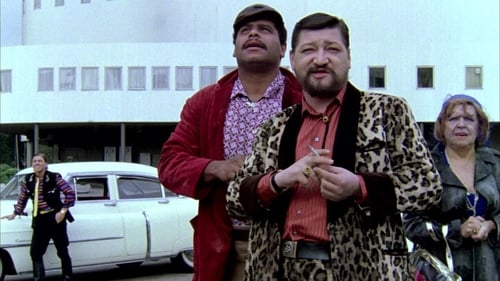
Polizeileutnant Jansen
In a totalitarian society of the future, in which the government controls all facets of the media, a homicide detective investigates a string of bombings, and finds out more than he bargained for.
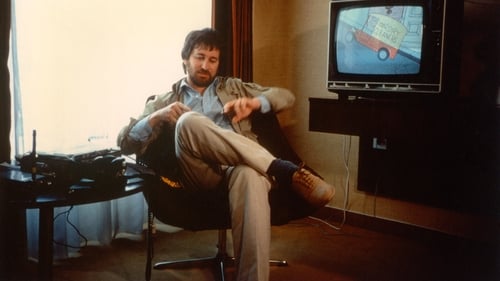
Self
During the 1982 Cannes Film Festival, Wenders asks a number of global film directors to, one at a time, go into a hotel room, turn on the camera and answer a simple question: "What is the future of cinema?"
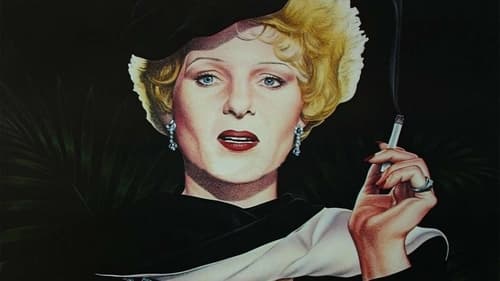
Co-Producer
In Munich 1955, German film star Veronika Voss becomes a drug addict at the mercy of corrupt Dr. Marianne Katz, who keeps her supplied with morphine. After meeting sports writer Robert Krohn, Veronika begins to dream of a return to stardom. As the couple's relationship escalates in intensity, Veronika begins seriously planning her return to the screen -- only to realize how debilitated she has become through her drug habit.

Kinobesucher (uncredited)
In Munich 1955, German film star Veronika Voss becomes a drug addict at the mercy of corrupt Dr. Marianne Katz, who keeps her supplied with morphine. After meeting sports writer Robert Krohn, Veronika begins to dream of a return to stardom. As the couple's relationship escalates in intensity, Veronika begins seriously planning her return to the screen -- only to realize how debilitated she has become through her drug habit.

Screenplay
In Munich 1955, German film star Veronika Voss becomes a drug addict at the mercy of corrupt Dr. Marianne Katz, who keeps her supplied with morphine. After meeting sports writer Robert Krohn, Veronika begins to dream of a return to stardom. As the couple's relationship escalates in intensity, Veronika begins seriously planning her return to the screen -- only to realize how debilitated she has become through her drug habit.

Director
In Munich 1955, German film star Veronika Voss becomes a drug addict at the mercy of corrupt Dr. Marianne Katz, who keeps her supplied with morphine. After meeting sports writer Robert Krohn, Veronika begins to dream of a return to stardom. As the couple's relationship escalates in intensity, Veronika begins seriously planning her return to the screen -- only to realize how debilitated she has become through her drug habit.
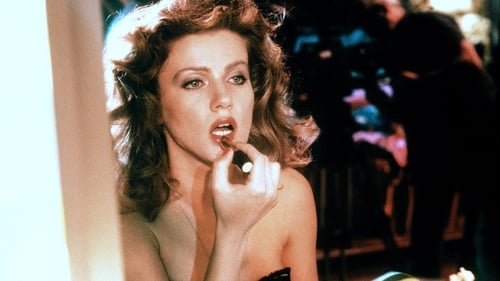
Line Producer
Germany in the autumn of 1957: Lola, a seductive cabaret singer-prostitute exults in her power as a temptress of men, but she wants out—she wants money, property, and love. Pitting a corrupt building contractor against the new straight-arrow building commissioner, Lola launches an outrageous plan to elevate herself in a world where everything, and everyone, is for sale. Shot in childlike candy colors, Fassbinder’s homage to Josef von Sternberg’s classic The Blue Angel stands as a satiric tribute to capitalism.

Writer
Rainer Werner Fassbinder visits for two weeks the "Theater der Welt" festival 1981 in Cologne. 30 companies showed in over 100 performances their own visions of a new theater. Framed by Fassbinder's reading of one of the famous essays on theater: Antonin Artaud's "The Theater and its double". The audience is left to wonder how much of Artaud's radical and beautiful vision is realized in contemporary theater.

Director
Rainer Werner Fassbinder visits for two weeks the "Theater der Welt" festival 1981 in Cologne. 30 companies showed in over 100 performances their own visions of a new theater. Framed by Fassbinder's reading of one of the famous essays on theater: Antonin Artaud's "The Theater and its double". The audience is left to wonder how much of Artaud's radical and beautiful vision is realized in contemporary theater.

Editor
Germany in the autumn of 1957: Lola, a seductive cabaret singer-prostitute exults in her power as a temptress of men, but she wants out—she wants money, property, and love. Pitting a corrupt building contractor against the new straight-arrow building commissioner, Lola launches an outrageous plan to elevate herself in a world where everything, and everyone, is for sale. Shot in childlike candy colors, Fassbinder’s homage to Josef von Sternberg’s classic The Blue Angel stands as a satiric tribute to capitalism.

Screenplay
Germany in the autumn of 1957: Lola, a seductive cabaret singer-prostitute exults in her power as a temptress of men, but she wants out—she wants money, property, and love. Pitting a corrupt building contractor against the new straight-arrow building commissioner, Lola launches an outrageous plan to elevate herself in a world where everything, and everyone, is for sale. Shot in childlike candy colors, Fassbinder’s homage to Josef von Sternberg’s classic The Blue Angel stands as a satiric tribute to capitalism.

Director
Germany in the autumn of 1957: Lola, a seductive cabaret singer-prostitute exults in her power as a temptress of men, but she wants out—she wants money, property, and love. Pitting a corrupt building contractor against the new straight-arrow building commissioner, Lola launches an outrageous plan to elevate herself in a world where everything, and everyone, is for sale. Shot in childlike candy colors, Fassbinder’s homage to Josef von Sternberg’s classic The Blue Angel stands as a satiric tribute to capitalism.

Babiuch

Lui-même
A documentary about the Director Fassbinder but edited as if it was a film of the Master himself, with some sequences of his own movies.
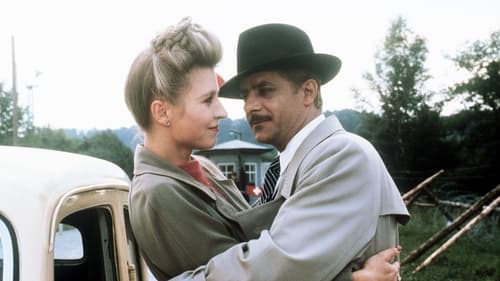
Screenplay
The story of a German singer named Willie who while working in Switzerland falls in love with a Jewish composer named Robert whose family is helping people to flee from the Nazis. Robert’s family is skeptical of Willie, thinking she could be a Nazi as she becomes famous for singing the song “Lili Marleen”.

Günther Weissenborn (uncredited)
The story of a German singer named Willie who while working in Switzerland falls in love with a Jewish composer named Robert whose family is helping people to flee from the Nazis. Robert’s family is skeptical of Willie, thinking she could be a Nazi as she becomes famous for singing the song “Lili Marleen”.

Editor
The story of a German singer named Willie who while working in Switzerland falls in love with a Jewish composer named Robert whose family is helping people to flee from the Nazis. Robert’s family is skeptical of Willie, thinking she could be a Nazi as she becomes famous for singing the song “Lili Marleen”.

Director
The story of a German singer named Willie who while working in Switzerland falls in love with a Jewish composer named Robert whose family is helping people to flee from the Nazis. Robert’s family is skeptical of Willie, thinking she could be a Nazi as she becomes famous for singing the song “Lili Marleen”.

Self
Documentary about the making of the 1980 German television series.
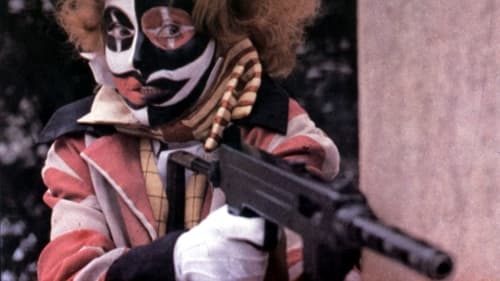
Camera Operator
A mogul merrily funds terrorists to boost his computer sales, by panicking West German government and industry c. 1980, as the third generation of Western European left-wing activists forms, after crippling of the violent Red Army Faction. International capitalist PJ Lurz's secretary is a gang member, while her police commissioner father-in-law/lover hired Lurz' corporate security force.

Director of Photography
A mogul merrily funds terrorists to boost his computer sales, by panicking West German government and industry c. 1980, as the third generation of Western European left-wing activists forms, after crippling of the violent Red Army Faction. International capitalist PJ Lurz's secretary is a gang member, while her police commissioner father-in-law/lover hired Lurz' corporate security force.

Producer
A mogul merrily funds terrorists to boost his computer sales, by panicking West German government and industry c. 1980, as the third generation of Western European left-wing activists forms, after crippling of the violent Red Army Faction. International capitalist PJ Lurz's secretary is a gang member, while her police commissioner father-in-law/lover hired Lurz' corporate security force.

Screenplay
A mogul merrily funds terrorists to boost his computer sales, by panicking West German government and industry c. 1980, as the third generation of Western European left-wing activists forms, after crippling of the violent Red Army Faction. International capitalist PJ Lurz's secretary is a gang member, while her police commissioner father-in-law/lover hired Lurz' corporate security force.

Director
A mogul merrily funds terrorists to boost his computer sales, by panicking West German government and industry c. 1980, as the third generation of Western European left-wing activists forms, after crippling of the violent Red Army Faction. International capitalist PJ Lurz's secretary is a gang member, while her police commissioner father-in-law/lover hired Lurz' corporate security force.
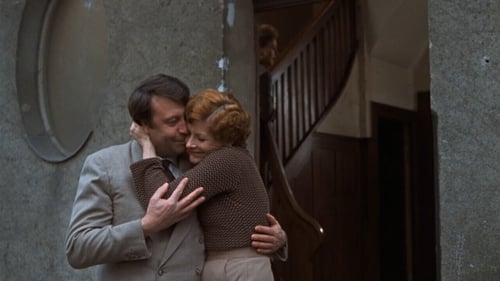
Peddler
Maria marries a young soldier in the last days of World War II, only for him to go missing in the war. She must rely on her beauty and ambition to navigate the difficult post-war years alone.

Idea
Maria marries a young soldier in the last days of World War II, only for him to go missing in the war. She must rely on her beauty and ambition to navigate the difficult post-war years alone.

Editor
Maria marries a young soldier in the last days of World War II, only for him to go missing in the war. She must rely on her beauty and ambition to navigate the difficult post-war years alone.

Director
Maria marries a young soldier in the last days of World War II, only for him to go missing in the war. She must rely on her beauty and ambition to navigate the difficult post-war years alone.
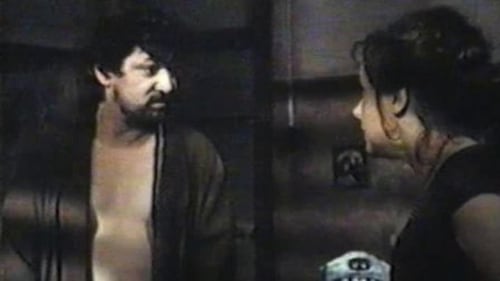
Writer
An adaptation of Tennessee Williams' "The Lady Larkspur Lotion" created by Douglas Sirk with the assistance of his film students and Rainer Werner Fassbinder. It depicts the conflict between a dreamy, delusional heroine and her brusque, practical landlady, who wants to kick her out of her apartment.
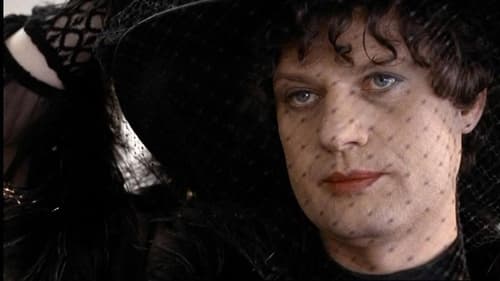
Art Direction
Elvira Weishaupt, once a burly working-class butcher, has made an enormous sacrifice for love. She has undergone a sex change for a romantic interest who has abandoned her, and she now must struggle to reconcile her past life with her present identity.

Director of Photography
Elvira Weishaupt, once a burly working-class butcher, has made an enormous sacrifice for love. She has undergone a sex change for a romantic interest who has abandoned her, and she now must struggle to reconcile her past life with her present identity.

Producer
Elvira Weishaupt, once a burly working-class butcher, has made an enormous sacrifice for love. She has undergone a sex change for a romantic interest who has abandoned her, and she now must struggle to reconcile her past life with her present identity.

Editor
Elvira Weishaupt, once a burly working-class butcher, has made an enormous sacrifice for love. She has undergone a sex change for a romantic interest who has abandoned her, and she now must struggle to reconcile her past life with her present identity.

Writer
Elvira Weishaupt, once a burly working-class butcher, has made an enormous sacrifice for love. She has undergone a sex change for a romantic interest who has abandoned her, and she now must struggle to reconcile her past life with her present identity.

Director
Elvira Weishaupt, once a burly working-class butcher, has made an enormous sacrifice for love. She has undergone a sex change for a romantic interest who has abandoned her, and she now must struggle to reconcile her past life with her present identity.

Editor

Producer
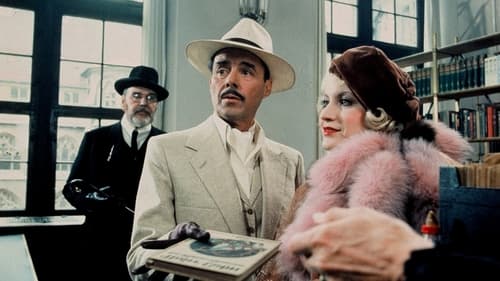
Editor
Berlin, 1930, during the rise of Nazism. Hermann Hermann, a Russian emigrant and chocolate manufacturer, married to the capricious Lydia, loses his temper more and more every day when dealing with his workers and other businessmen; until he meets Felix, a vagrant, who seems to be physically identical to him; a disconcerting fact that leads Hermann Hermann to plot a particular way out of a fake world he actually hates.

Director
Berlin, 1930, during the rise of Nazism. Hermann Hermann, a Russian emigrant and chocolate manufacturer, married to the capricious Lydia, loses his temper more and more every day when dealing with his workers and other businessmen; until he meets Felix, a vagrant, who seems to be physically identical to him; a disconcerting fact that leads Hermann Hermann to plot a particular way out of a fake world he actually hates.

Self
This is a 45 minute interview with RWF in the kitchen in a house he had rented close to Paris at that time. Four years before his untimely death the interview shows a quite relaxed and patient Fassbinder who answers all kinds of (often contrafactual or at least uninformed) questions and reveals quite a lot about his childhood and current personal drama. Sober, chainsmoking but very lightheaded RWF.
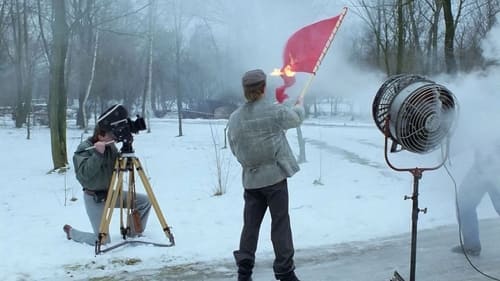
Self
Germany in Autumn does not have a plot per se; it mixes documentary footage, along with standard movie scenes, to give the audience the mood of Germany during the late 1970s. The movie covers the two month time period during 1977 when a businessman was kidnapped, and later murdered, by the left-wing terrorists known as the RAF-Rote Armee Fraktion (Red Army Fraction). The businessman had been kidnapped in an effort to secure the release of the orginal leaders of the RAF, also known as the Baader-Meinhof gang. When the kidnapping effort and a plane hijacking effort failed, the three most prominent leaders of the RAF, Andreas Baader, Gudrun Ensslin, and Jan-Carl Raspe, all committed suicide in prison. It has become an article of faith within the left-wing community that these three were actually murdered by the state.

Screenplay
Germany in Autumn does not have a plot per se; it mixes documentary footage, along with standard movie scenes, to give the audience the mood of Germany during the late 1970s. The movie covers the two month time period during 1977 when a businessman was kidnapped, and later murdered, by the left-wing terrorists known as the RAF-Rote Armee Fraktion (Red Army Fraction). The businessman had been kidnapped in an effort to secure the release of the orginal leaders of the RAF, also known as the Baader-Meinhof gang. When the kidnapping effort and a plane hijacking effort failed, the three most prominent leaders of the RAF, Andreas Baader, Gudrun Ensslin, and Jan-Carl Raspe, all committed suicide in prison. It has become an article of faith within the left-wing community that these three were actually murdered by the state.

Director
Germany in Autumn does not have a plot per se; it mixes documentary footage, along with standard movie scenes, to give the audience the mood of Germany during the late 1970s. The movie covers the two month time period during 1977 when a businessman was kidnapped, and later murdered, by the left-wing terrorists known as the RAF-Rote Armee Fraktion (Red Army Fraction). The businessman had been kidnapped in an effort to secure the release of the orginal leaders of the RAF, also known as the Baader-Meinhof gang. When the kidnapping effort and a plane hijacking effort failed, the three most prominent leaders of the RAF, Andreas Baader, Gudrun Ensslin, and Jan-Carl Raspe, all committed suicide in prison. It has become an article of faith within the left-wing community that these three were actually murdered by the state.
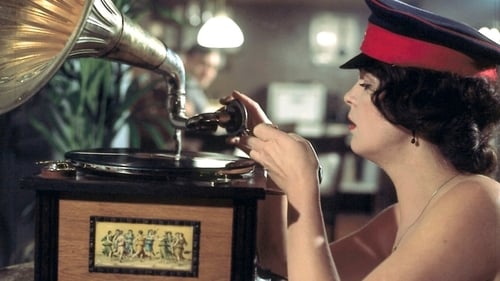
Editor
The lackluster and plodding Bolweiser has the (mis)fortune to be married to the town’s siren; his trusting nature leads him into serious trouble when she beds nearly every available guy.

Writer
The lackluster and plodding Bolweiser has the (mis)fortune to be married to the town’s siren; his trusting nature leads him into serious trouble when she beds nearly every available guy.

Director
The lackluster and plodding Bolweiser has the (mis)fortune to be married to the town’s siren; his trusting nature leads him into serious trouble when she beds nearly every available guy.
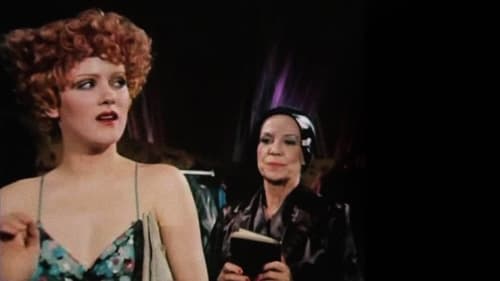
Director
The main characters in this film are wives of rich men who have nothing to do because they have staff – like the cook, the maid, the hairdresser, the manicurist, the governess, the teacher, the tailor etc. – who work for them. Naturally, the wives themselves do not pursue careers, they depend on their husbands’ money. This is why most of their thoughts revolve around the husband. And because the husband only appears as “the” man, there is no man in this film. All women fight for the same man. Those who have one, want to keep him no matter what. And those who do not have one yet only have one goal: To take away somebody else’s husband.

Producer
When Hitler watches Marlene Dietrich in a movie, he falls in love with her. He persuades her to come back to Germany to be with him, but upon her arrival she constantly insults and provokes him until he eventually, on her command, bites the carpet to bits.

Self
Rainer Werner Fassbinder reflects on the various stages of his career, discusses how his motives behind filmmaking evolved up his film Despair.

Self
BBC documentary about the rise of the New German Cinema and several of its most important figures.

Writer
A husband and wife lie to each other about their weekend travel plans, only to both show up at the family's country house with their lovers.

Director
A husband and wife lie to each other about their weekend travel plans, only to both show up at the family's country house with their lovers.
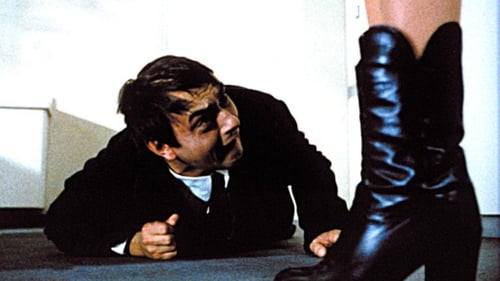
Writer
This fast-paced black comedy by wunderkind director Rainer Werner Fassbinder follows the frantic efforts of a starving and confused writer, Walter Kranz to beg, borrow or steal enough money to survive on, and at the same time make some sense of his confusing life. Unable to write enough to keep his publisher's royalty advances coming, he seeks out a woman he imagines is a prostitute and interviews her for material. He is also inspired to utter some poetry, which his brassy, outspoken wife identifies as coming from the famous homosexuality-advocating mystical German poet, Stefan George. This inspires Walter to take a closer look at the gay scene, and he quickly becomes a sort of celebrity there.

Director
This fast-paced black comedy by wunderkind director Rainer Werner Fassbinder follows the frantic efforts of a starving and confused writer, Walter Kranz to beg, borrow or steal enough money to survive on, and at the same time make some sense of his confusing life. Unable to write enough to keep his publisher's royalty advances coming, he seeks out a woman he imagines is a prostitute and interviews her for material. He is also inspired to utter some poetry, which his brassy, outspoken wife identifies as coming from the famous homosexuality-advocating mystical German poet, Stefan George. This inspires Walter to take a closer look at the gay scene, and he quickly becomes a sort of celebrity there.
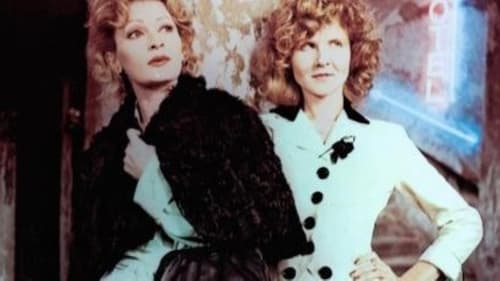
Screenplay
Beautiful, detached, laconic, consumptive Lily Brest is a streetwalker with few clients. She loves her idle boyfriend Raoul who gambles away what little she earns. The town's power broker, called the rich Jew, discovers she is a good listener, so she's soon busy. Raoul imagines grotesque sex scenes between Lily and the Jew; he leaves her for a man. Her parents, a bitter Fascist who is a cabaret singer in drag and her wheelchair-bound mother, offer no refuge. Even though all have a philosophical bent, the other whores reject Lily because she tolerates everyone, including men. She tires of her lonely life and looks for a way out. Even that act serves the local corrupt powers.

Theatre Play
Beautiful, detached, laconic, consumptive Lily Brest is a streetwalker with few clients. She loves her idle boyfriend Raoul who gambles away what little she earns. The town's power broker, called the rich Jew, discovers she is a good listener, so she's soon busy. Raoul imagines grotesque sex scenes between Lily and the Jew; he leaves her for a man. Her parents, a bitter Fascist who is a cabaret singer in drag and her wheelchair-bound mother, offer no refuge. Even though all have a philosophical bent, the other whores reject Lily because she tolerates everyone, including men. She tires of her lonely life and looks for a way out. Even that act serves the local corrupt powers.

Raoul
Beautiful, detached, laconic, consumptive Lily Brest is a streetwalker with few clients. She loves her idle boyfriend Raoul who gambles away what little she earns. The town's power broker, called the rich Jew, discovers she is a good listener, so she's soon busy. Raoul imagines grotesque sex scenes between Lily and the Jew; he leaves her for a man. Her parents, a bitter Fascist who is a cabaret singer in drag and her wheelchair-bound mother, offer no refuge. Even though all have a philosophical bent, the other whores reject Lily because she tolerates everyone, including men. She tires of her lonely life and looks for a way out. Even that act serves the local corrupt powers.
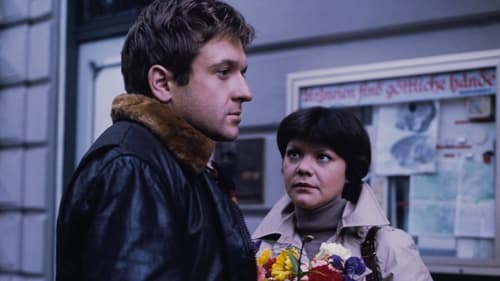
Writer
The story of the young man Peter, who grew up during the economic miracle, bereft of parental care and love. Learning early on that interpersonal relationships are based on the principles of exchange or purchase, he abides by these rules and gives generous presents to his family and his wife Erika. But when he is unable to keep up this life-style, his story takes a horrendous turn ...

Director
The story of the young man Peter, who grew up during the economic miracle, bereft of parental care and love. Learning early on that interpersonal relationships are based on the principles of exchange or purchase, he abides by these rules and gives generous presents to his family and his wife Erika. But when he is unable to keep up this life-style, his story takes a horrendous turn ...
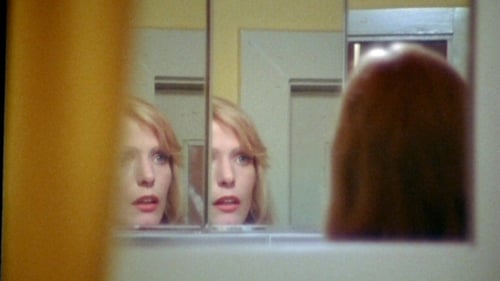
Writer
After having her second child, a German housewife suffers from post-partum depression before inexplicably falling into a continually misdiagnosed mental state, befuddling her relatives.

Director
After having her second child, a German housewife suffers from post-partum depression before inexplicably falling into a continually misdiagnosed mental state, befuddling her relatives.
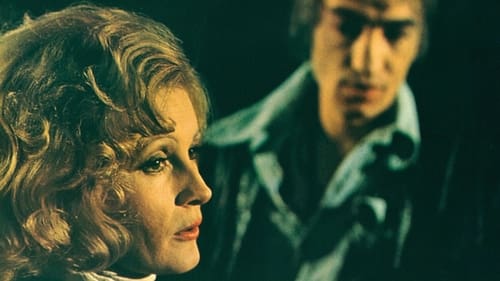
Writer
After a worker kills a superior and commits suicide, each of his family members attempts to forge a path forward in life.

Director
After a worker kills a superior and commits suicide, each of his family members attempts to forge a path forward in life.
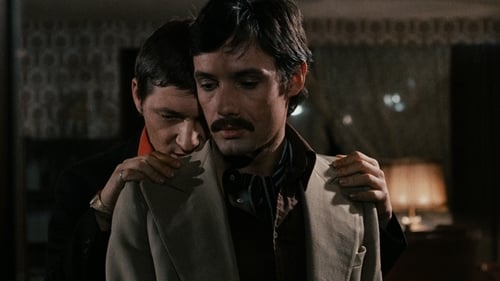
Producer
Fox, a former circus performer, wins the lottery of DM 500,000 and can now have the life and things that he has always wanted. While he wants to climb up the social ladder, it isn't without turmoil, and being torn between his old working class roots, and the shiny new facade of middle class consciousness.

Writer
Fox, a former circus performer, wins the lottery of DM 500,000 and can now have the life and things that he has always wanted. While he wants to climb up the social ladder, it isn't without turmoil, and being torn between his old working class roots, and the shiny new facade of middle class consciousness.

Franz "Fox" Bieberkopf
Fox, a former circus performer, wins the lottery of DM 500,000 and can now have the life and things that he has always wanted. While he wants to climb up the social ladder, it isn't without turmoil, and being torn between his old working class roots, and the shiny new facade of middle class consciousness.

Director
Fox, a former circus performer, wins the lottery of DM 500,000 and can now have the life and things that he has always wanted. While he wants to climb up the social ladder, it isn't without turmoil, and being torn between his old working class roots, and the shiny new facade of middle class consciousness.

Writer
A pseudo variety show about the Aufbau-Era, the time of the German 'economic miracle'. Brigitte Mira recounts her four husbands through song and joke, on an series of artificial sets.

Director
A pseudo variety show about the Aufbau-Era, the time of the German 'economic miracle'. Brigitte Mira recounts her four husbands through song and joke, on an series of artificial sets.

Self
Documenatry about the films of Douglas Sirk.

Writer
Nightclub singer La Paloma succumbs to the persistent courting of a chubby rich admirer and marries him. Before the marriage, she was thought to be dying, but soon she is well. She believes her husband's love has cured her, but her efforts to love him begin to fade as she discovers true love with her husband's old school friend.
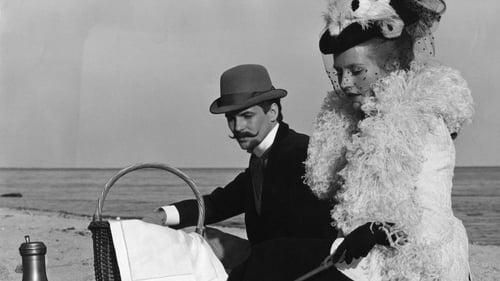
Narrator (uncredited)
A German-made film based on one of the most famous German novels by Theodor Fontane. Effi Briest is a socially ambitious, 17-year-old German girl who accepts a proposal of marriage from Baron Geert Von Instetten, a much older diplomat. Unfortunately, neither the Baron's family nor anyone in the secluded town she now calls home accept Effi as an equal. Starved for companionship, Effi begins an innocent friendship with a well-known womanizer that may jeopardize her position as the Baron's wife.

Producer
A German-made film based on one of the most famous German novels by Theodor Fontane. Effi Briest is a socially ambitious, 17-year-old German girl who accepts a proposal of marriage from Baron Geert Von Instetten, a much older diplomat. Unfortunately, neither the Baron's family nor anyone in the secluded town she now calls home accept Effi as an equal. Starved for companionship, Effi begins an innocent friendship with a well-known womanizer that may jeopardize her position as the Baron's wife.

Screenplay
A German-made film based on one of the most famous German novels by Theodor Fontane. Effi Briest is a socially ambitious, 17-year-old German girl who accepts a proposal of marriage from Baron Geert Von Instetten, a much older diplomat. Unfortunately, neither the Baron's family nor anyone in the secluded town she now calls home accept Effi as an equal. Starved for companionship, Effi begins an innocent friendship with a well-known womanizer that may jeopardize her position as the Baron's wife.

Director
A German-made film based on one of the most famous German novels by Theodor Fontane. Effi Briest is a socially ambitious, 17-year-old German girl who accepts a proposal of marriage from Baron Geert Von Instetten, a much older diplomat. Unfortunately, neither the Baron's family nor anyone in the secluded town she now calls home accept Effi as an equal. Starved for companionship, Effi begins an innocent friendship with a well-known womanizer that may jeopardize her position as the Baron's wife.
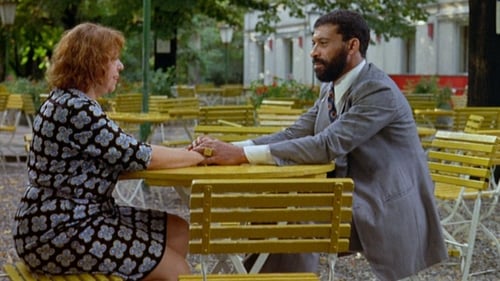
Eugen
Emmi Kurowski, a cleaning lady, is lonely in her old age. Her husband died years ago, and her grown children offer little companionship. One night she goes to a bar frequented by Arab immigrants and strikes up a friendship with middle-aged mechanic Ali. Their relationship soon develops into something more, and Emmi's family and neighbors criticize their spontaneous marriage. Soon Emmi and Ali are forced to confront their own insecurities about their future.

Production Design
Emmi Kurowski, a cleaning lady, is lonely in her old age. Her husband died years ago, and her grown children offer little companionship. One night she goes to a bar frequented by Arab immigrants and strikes up a friendship with middle-aged mechanic Ali. Their relationship soon develops into something more, and Emmi's family and neighbors criticize their spontaneous marriage. Soon Emmi and Ali are forced to confront their own insecurities about their future.

Original Music Composer
Emmi Kurowski, a cleaning lady, is lonely in her old age. Her husband died years ago, and her grown children offer little companionship. One night she goes to a bar frequented by Arab immigrants and strikes up a friendship with middle-aged mechanic Ali. Their relationship soon develops into something more, and Emmi's family and neighbors criticize their spontaneous marriage. Soon Emmi and Ali are forced to confront their own insecurities about their future.

Author
Emmi Kurowski, a cleaning lady, is lonely in her old age. Her husband died years ago, and her grown children offer little companionship. One night she goes to a bar frequented by Arab immigrants and strikes up a friendship with middle-aged mechanic Ali. Their relationship soon develops into something more, and Emmi's family and neighbors criticize their spontaneous marriage. Soon Emmi and Ali are forced to confront their own insecurities about their future.

Producer
Emmi Kurowski, a cleaning lady, is lonely in her old age. Her husband died years ago, and her grown children offer little companionship. One night she goes to a bar frequented by Arab immigrants and strikes up a friendship with middle-aged mechanic Ali. Their relationship soon develops into something more, and Emmi's family and neighbors criticize their spontaneous marriage. Soon Emmi and Ali are forced to confront their own insecurities about their future.

Director
Emmi Kurowski, a cleaning lady, is lonely in her old age. Her husband died years ago, and her grown children offer little companionship. One night she goes to a bar frequented by Arab immigrants and strikes up a friendship with middle-aged mechanic Ali. Their relationship soon develops into something more, and Emmi's family and neighbors criticize their spontaneous marriage. Soon Emmi and Ali are forced to confront their own insecurities about their future.

Screenplay
After the death of her abusive father, lonely librarian Martha is caught in a strange, sadomasochistic relationship with a monstrous husband whom she begins to suspect may be trying to murder her.

Director
After the death of her abusive father, lonely librarian Martha is caught in a strange, sadomasochistic relationship with a monstrous husband whom she begins to suspect may be trying to murder her.

Director
A childish wife reveals surprising strength when faced with blackmail. Based on A Doll's House by Ibsen, this is a video recording made for German television.

Himself
An African-American GI retires from the US Army in West Berlin to live with his (white) girlfriend, who already has a baby with another black man. After an argument with her family, she deserts him as well. Despite finding a job and a new place to live, he keeps running into racism, which also manifests itself in sexual intimidation.
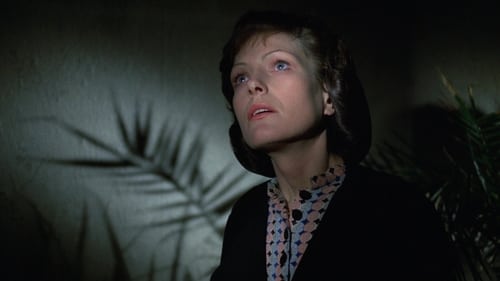
Producer
A German serial killer preys on boys and young men during the so-called years of crisis between the wars. Based on the true story of Fritz Haarmann, aka the Butcher of Hanover and the Vampire of Hanover.

Wittowski
A German serial killer preys on boys and young men during the so-called years of crisis between the wars. Based on the true story of Fritz Haarmann, aka the Butcher of Hanover and the Vampire of Hanover.
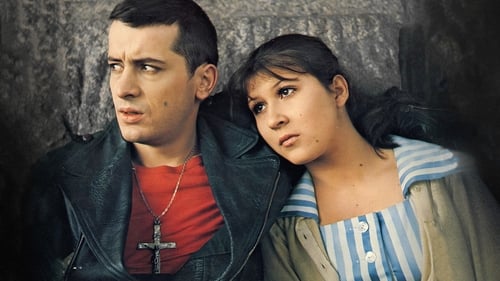
Director
Based on Franz Xaver Kroetz's play, which is in turn based on a true story, this film by Rainer Werner Fassbinder tells the story of a very young girl who, after persuading a local boy to become her lover, induces the anger of her father, whose incestuous sexual attentions to her have grown unbearable.

Screenplay
Based on Franz Xaver Kroetz's play, which is in turn based on a true story, this film by Rainer Werner Fassbinder tells the story of a very young girl who, after persuading a local boy to become her lover, induces the anger of her father, whose incestuous sexual attentions to her have grown unbearable.

Writer
Based on Franz Xaver Kroetz's play, which is in turn based on a true story, this film by Rainer Werner Fassbinder tells the story of a very young girl who, after persuading a local boy to become her lover, induces the anger of her father, whose incestuous sexual attentions to her have grown unbearable.

Author
A very stylized TV version of the Fassbinder play. The set consists of a few pieces of furniture in front of a large screen on which coastal scenery is back projected. Geesche is a nineteenth century woman who wants to have a mind of her own. She defies convention and will do anything to achieve her freedom from oppression by her family and friends. (synopsis written by Will Gilbert)

Rumpf
A very stylized TV version of the Fassbinder play. The set consists of a few pieces of furniture in front of a large screen on which coastal scenery is back projected. Geesche is a nineteenth century woman who wants to have a mind of her own. She defies convention and will do anything to achieve her freedom from oppression by her family and friends. (synopsis written by Will Gilbert)

Director
A very stylized TV version of the Fassbinder play. The set consists of a few pieces of furniture in front of a large screen on which coastal scenery is back projected. Geesche is a nineteenth century woman who wants to have a mind of her own. She defies convention and will do anything to achieve her freedom from oppression by her family and friends. (synopsis written by Will Gilbert)

Producer
Petra von Kant is a successful fashion designer -- arrogant, caustic, and self-satisfied. She mistreats Marlene (her secretary, maid, and co-designer). Enter Karin, a 23-year-old beauty who wants to be a model. Petra falls in love with Karin and invites her to move in.

Screenplay
Petra von Kant is a successful fashion designer -- arrogant, caustic, and self-satisfied. She mistreats Marlene (her secretary, maid, and co-designer). Enter Karin, a 23-year-old beauty who wants to be a model. Petra falls in love with Karin and invites her to move in.

Director
Petra von Kant is a successful fashion designer -- arrogant, caustic, and self-satisfied. She mistreats Marlene (her secretary, maid, and co-designer). Enter Karin, a 23-year-old beauty who wants to be a model. Petra falls in love with Karin and invites her to move in.
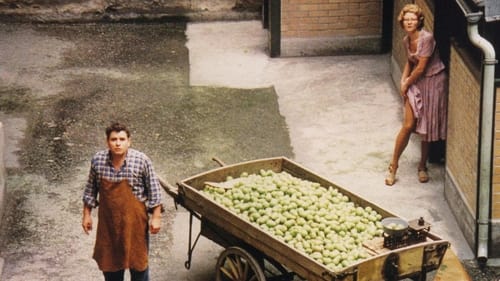
Screenplay
Hans is a street fruit peddler and born-loser. His choice of career upsets his bourgeois family, causing him to turn to drinking and violence. After recovering from a debilitating heart attack, his business finally begins to take off. However the more he becomes a credit to his family, the more depressed he becomes.

Director
Hans is a street fruit peddler and born-loser. His choice of career upsets his bourgeois family, causing him to turn to drinking and violence. After recovering from a debilitating heart attack, his business finally begins to take off. However the more he becomes a credit to his family, the more depressed he becomes.

Jaromir
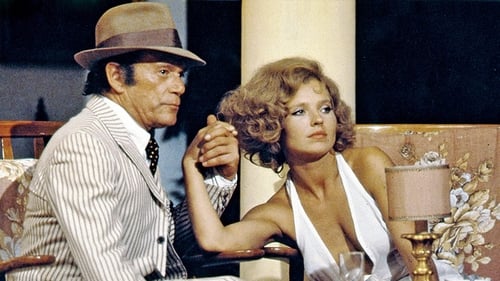
Editor
Tensions between members of a film crew build while they wait for the arrival of the director and star to arrive on location.

Sascha
Tensions between members of a film crew build while they wait for the arrival of the director and star to arrive on location.

Writer
Tensions between members of a film crew build while they wait for the arrival of the director and star to arrive on location.

Director
Tensions between members of a film crew build while they wait for the arrival of the director and star to arrive on location.
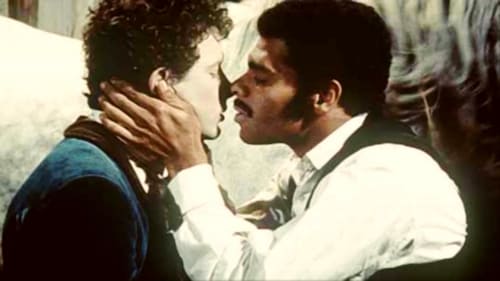
Editor
"Whity" is the mulatto butler of the dysfunctional Nicholson family in the American southwest in 1878. The father, Ben Nicholson, has an attractive young wife Katherine, and two sons by a previous marriage; the homosexual Frank, and the retarded Davy. Whity tries to carry out all their orders, however demeaning, until various of the family members ask him to kill some of the others.

"Whity" is the mulatto butler of the dysfunctional Nicholson family in the American southwest in 1878. The father, Ben Nicholson, has an attractive young wife Katherine, and two sons by a previous marriage; the homosexual Frank, and the retarded Davy. Whity tries to carry out all their orders, however demeaning, until various of the family members ask him to kill some of the others.

Screenplay
"Whity" is the mulatto butler of the dysfunctional Nicholson family in the American southwest in 1878. The father, Ben Nicholson, has an attractive young wife Katherine, and two sons by a previous marriage; the homosexual Frank, and the retarded Davy. Whity tries to carry out all their orders, however demeaning, until various of the family members ask him to kill some of the others.

Director
"Whity" is the mulatto butler of the dysfunctional Nicholson family in the American southwest in 1878. The father, Ben Nicholson, has an attractive young wife Katherine, and two sons by a previous marriage; the homosexual Frank, and the retarded Davy. Whity tries to carry out all their orders, however demeaning, until various of the family members ask him to kill some of the others.

Flecklbauer
Inspired by the real life events of Mathias Kneißl, a marginal man, son of poor farmers from Bavaria, in the late XIX Century. Mathias stole from the riches to give to the poor, becoming a hero for the rural people, and a popular social rebel. He was chased by the police until his unfortunate sentence.

Screenplay
German filmmaker Rainer Werner Fassbinder directs the made-for-TV melodrama Pioneers in Ingolstadt, based on the play by Marieluise Fleisser. The film opens as a parade of soldiers are marching through a town square singing patriotic songs. Alma (Irm Hermann) and Berta (Hanna Schygulla) are watching them and musing about their ideas on men and relationships. The soldiers (often referred to as pioneers) have been given the task of building a bridge in the town. Alma seems to understand that the soldiers only want her for short sexual encounters, so she's prepared to live her life accordingly. Meanwhile, romantic Berta falls in love with self-centered soldier Karl (Harry Baer), who all but tells her to get lost. The soldiers get drunk and beat up a random passerby. The women grow to hate Alma for her acceptance of life as a sex object. Naïve Berta is ultimately humiliated.

Director
German filmmaker Rainer Werner Fassbinder directs the made-for-TV melodrama Pioneers in Ingolstadt, based on the play by Marieluise Fleisser. The film opens as a parade of soldiers are marching through a town square singing patriotic songs. Alma (Irm Hermann) and Berta (Hanna Schygulla) are watching them and musing about their ideas on men and relationships. The soldiers (often referred to as pioneers) have been given the task of building a bridge in the town. Alma seems to understand that the soldiers only want her for short sexual encounters, so she's prepared to live her life accordingly. Meanwhile, romantic Berta falls in love with self-centered soldier Karl (Harry Baer), who all but tells her to get lost. The soldiers get drunk and beat up a random passerby. The women grow to hate Alma for her acceptance of life as a sex object. Naïve Berta is ultimately humiliated.

Man in Front of Shop Window
In this comedy, Iris Berben plays a mysterious, supernaturally beautiful girl from another planet, who confuses and flusters the men on earth, where she has landed. The men follow her wherever she goes. Marquard Bohm is no exception here - he leaves his wife in a lurch and travels with the Supergirl to Spain. The girl doesn't tell much about herself; she reports, though, about an impending threat from outer space.

Bauer
An intriguing Hans Christian Anderson-style fairy tale aesthetic and voice over narration. Sudden Wealth is a despairing chronicle of a group of starving peasants who finally seize governmental wealth like a dysfunctional group of Robin Hood's Merry Men, only to be betrayed by their inescapable selves and systematically dehumanized (think bucolic Orwell) and reprogrammed by what we'll put under the rubric of God and Country.
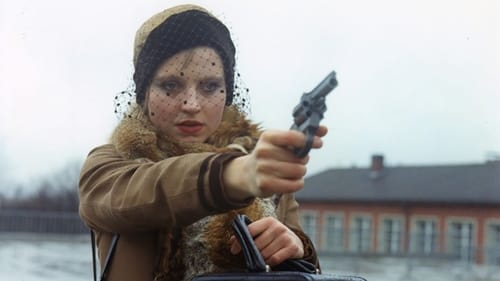
Editor
Michel and Guenther, working in dead-end jobs, are obsessed with going to Peru to find buried treasure, using a map of the Rio das Mortes. Michel's girlfriend, Hanna, humors their plan, but really just wants to get married.

Michel and Guenther, working in dead-end jobs, are obsessed with going to Peru to find buried treasure, using a map of the Rio das Mortes. Michel's girlfriend, Hanna, humors their plan, but really just wants to get married.

Writer
Michel and Guenther, working in dead-end jobs, are obsessed with going to Peru to find buried treasure, using a map of the Rio das Mortes. Michel's girlfriend, Hanna, humors their plan, but really just wants to get married.

Director
Michel and Guenther, working in dead-end jobs, are obsessed with going to Peru to find buried treasure, using a map of the Rio das Mortes. Michel's girlfriend, Hanna, humors their plan, but really just wants to get married.

A biochemistry professor finds an old manuscript with structure and formula of immortality drug.
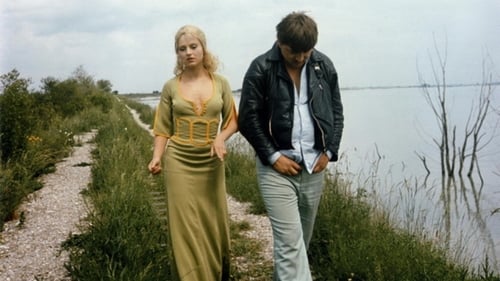
Editor
Can a small group of people start a proletarian revolution, asks the "Black Monk" in a leather jacket. The medieval shepherd, Hans Boehm, claims to have been called by the Virgin Mary to create a revolt against the church and the landowners. The "Black Monk" suggests that he would have more success if he dressed up Johanna and had her appear as the Virgin Mary.

Writer
Can a small group of people start a proletarian revolution, asks the "Black Monk" in a leather jacket. The medieval shepherd, Hans Boehm, claims to have been called by the Virgin Mary to create a revolt against the church and the landowners. The "Black Monk" suggests that he would have more success if he dressed up Johanna and had her appear as the Virgin Mary.

Schwarzer Mönch
Can a small group of people start a proletarian revolution, asks the "Black Monk" in a leather jacket. The medieval shepherd, Hans Boehm, claims to have been called by the Virgin Mary to create a revolt against the church and the landowners. The "Black Monk" suggests that he would have more success if he dressed up Johanna and had her appear as the Virgin Mary.

Director
Can a small group of people start a proletarian revolution, asks the "Black Monk" in a leather jacket. The medieval shepherd, Hans Boehm, claims to have been called by the Virgin Mary to create a revolt against the church and the landowners. The "Black Monk" suggests that he would have more success if he dressed up Johanna and had her appear as the Virgin Mary.
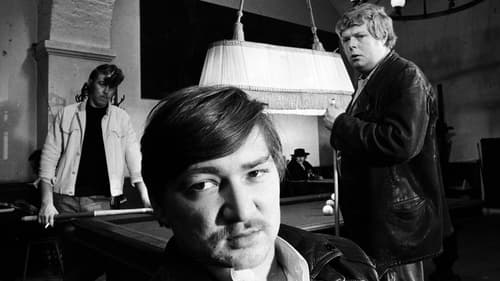
Franz Walsch (uncredited)
Ricky returns to Munich from Vietnam and is promptly hired as a contract killer.

Production Design
Ricky returns to Munich from Vietnam and is promptly hired as a contract killer.

Producer
Ricky returns to Munich from Vietnam and is promptly hired as a contract killer.

Writer
Ricky returns to Munich from Vietnam and is promptly hired as a contract killer.

Director
Ricky returns to Munich from Vietnam and is promptly hired as a contract killer.
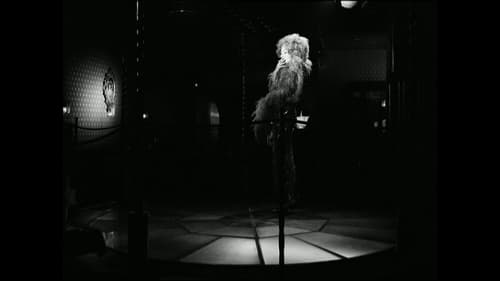
Producer
A man is released from prison and finds the society on the outside less than appealing. With several women as well as the police on his tail, he sets out to find an old friend.

Pornokunde
A man is released from prison and finds the society on the outside less than appealing. With several women as well as the police on his tail, he sets out to find an old friend.

Editor
A man is released from prison and finds the society on the outside less than appealing. With several women as well as the police on his tail, he sets out to find an old friend.

Screenplay
A man is released from prison and finds the society on the outside less than appealing. With several women as well as the police on his tail, he sets out to find an old friend.

Director
A man is released from prison and finds the society on the outside less than appealing. With several women as well as the police on his tail, he sets out to find an old friend.
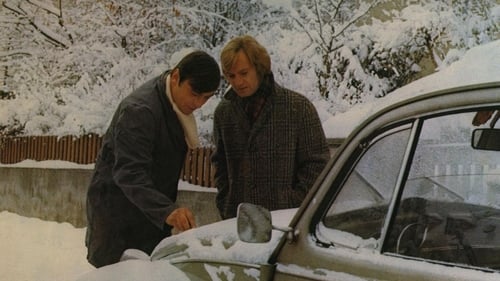
Editor
Herr Raab is a technical draftsman. His wife pushes him to seek a promotion, which may be a long shot after he gives a dull and tipsy toast at an office dinner. But why would Herr Raab run amok?

Screenplay
Herr Raab is a technical draftsman. His wife pushes him to seek a promotion, which may be a long shot after he gives a dull and tipsy toast at an office dinner. But why would Herr Raab run amok?

Director
Herr Raab is a technical draftsman. His wife pushes him to seek a promotion, which may be a long shot after he gives a dull and tipsy toast at an office dinner. But why would Herr Raab run amok?

Himself
"End of the Commune"/"Ende einer kommune" is a great 49 min. long movie made in 1969 about Fassbinder and the early years of the legendary Antiteater he was a member/leader of. You can here see and hear some of the actors he was going to use in his movies for the next years. The movie shows rehearsals for his play "The Coffehouse" which also became a television-movie, and you can watch unique footage from the 19th Film-Festival in Berlin (1969) where "Love is Colder Than Death" were shown. As told in this documentary, his first feature-movie were given a cold shoulder by many of the journalists and visitors at the festival. You can in "End of the Commune" watch Fassbinder and actor Ulli Lommel walk out on stage after the opening of "Love is Colder than Death", while a man in the audience is shouting "Out with the director!". In this interesting documentary Fassbinder also talks a lot about his father which was a respectable doctor.

Writer
Avant-garde adaptation of a Carlo Goldoni play. Well-to-do Venetians congregate in a coffee house and discuss their problems.

Director
Avant-garde adaptation of a Carlo Goldoni play. Well-to-do Venetians congregate in a coffee house and discuss their problems.
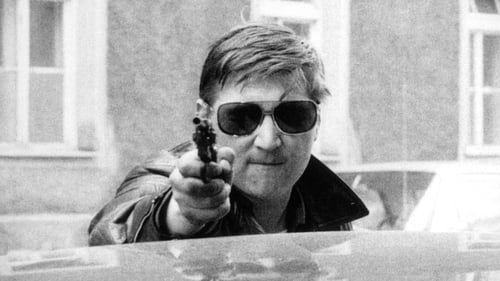
Franz
Small-time pimp Franz is torn between his mistress and Bruno, the gangster sent after him by a shady crime syndicate he's refused to join.

Editor
Small-time pimp Franz is torn between his mistress and Bruno, the gangster sent after him by a shady crime syndicate he's refused to join.

Screenplay
Small-time pimp Franz is torn between his mistress and Bruno, the gangster sent after him by a shady crime syndicate he's refused to join.

Director
Small-time pimp Franz is torn between his mistress and Bruno, the gangster sent after him by a shady crime syndicate he's refused to join.
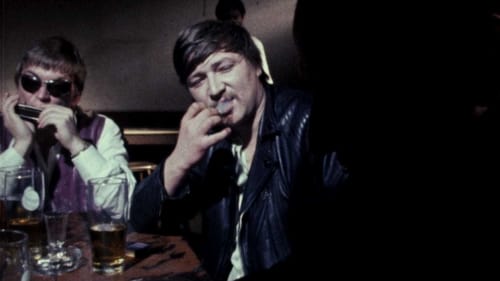
Baal
Volker Schlöndorff transposes Bertolt Brecht’s late-expressionist work to latter-day 1969. Poet and anarchist Baal lives in an attic and reads his poems to cab drivers. At first feted and later rejected by bourgeois society, Baal roams through forests and along motorways, greedy for schnapps, cigarettes, women and men: ‘You have to let out the beast, let him out into the sunlight.’ After impregnating a young actress he soon comes to regard her as a millstone round his neck. He stabs a friend to death and dies alone. ‘You are useless, mangy and wild, you beast, you crawl through the lowest boughs of the tree.’

Heini
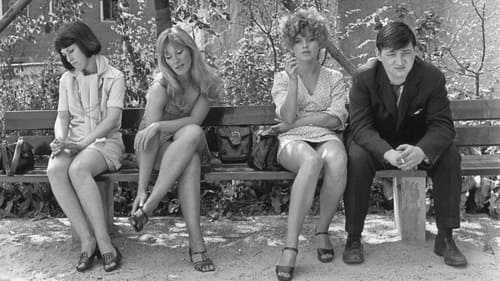
Theatre Play
A group of young slackers spend most of their time hanging out in front of a Munich apartment building. When a Greek immigrant named Jorgos moves in, however, their aimless lives are shaken up. Soon new tensions arise both within the group and with Jorgos.

Production Design
A group of young slackers spend most of their time hanging out in front of a Munich apartment building. When a Greek immigrant named Jorgos moves in, however, their aimless lives are shaken up. Soon new tensions arise both within the group and with Jorgos.

Jorgos
A group of young slackers spend most of their time hanging out in front of a Munich apartment building. When a Greek immigrant named Jorgos moves in, however, their aimless lives are shaken up. Soon new tensions arise both within the group and with Jorgos.

Screenplay
A group of young slackers spend most of their time hanging out in front of a Munich apartment building. When a Greek immigrant named Jorgos moves in, however, their aimless lives are shaken up. Soon new tensions arise both within the group and with Jorgos.

Editor
A group of young slackers spend most of their time hanging out in front of a Munich apartment building. When a Greek immigrant named Jorgos moves in, however, their aimless lives are shaken up. Soon new tensions arise both within the group and with Jorgos.

Director
A group of young slackers spend most of their time hanging out in front of a Munich apartment building. When a Greek immigrant named Jorgos moves in, however, their aimless lives are shaken up. Soon new tensions arise both within the group and with Jorgos.

Mechaniker

Mallard

the pimp
Three sequences are linked together in this short film by Straub; the first sequence is a long tracking shot from a car of prostitutes plying their trade on the night-time streets of Germany; the second is a staged play, cut down to 10 minutes by Straub and photographed in a single take; the final sequence covers the marriage of James and Lilith, and Lilith’s subsequent execution of her pimp, played by Rainer Werner Fassbinder. "The film is a look entirely at Western decadence" - Jean-Marie Straub.

Festnehmender Soldat
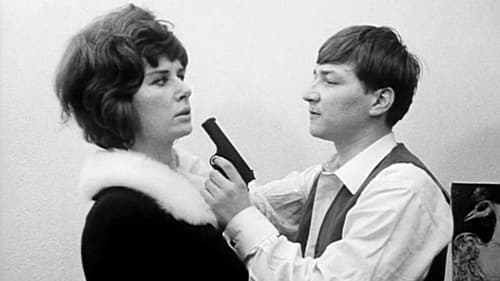
Writer
Theo, Marite, and Franz cannot make any money selling magazines door to door, so they try a little robbery.

Franz
Theo, Marite, and Franz cannot make any money selling magazines door to door, so they try a little robbery.

Director
Theo, Marite, and Franz cannot make any money selling magazines door to door, so they try a little robbery.

Cinematography
The first R.W. Fassbinder film project. 8 mm color. Considered lost.

Writer
The first R.W. Fassbinder film project. 8 mm color. Considered lost.

Director
The first R.W. Fassbinder film project. 8 mm color. Considered lost.
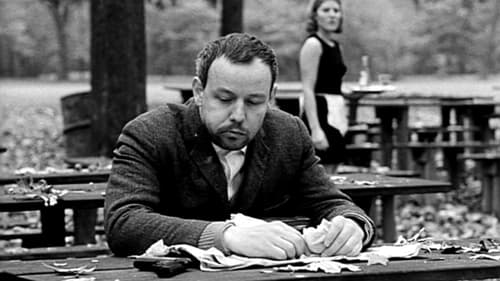
Editor
A tramp finds a gun lying in the street.

Man #1 on Toilet
A tramp finds a gun lying in the street.

Writer
A tramp finds a gun lying in the street.

Director
A tramp finds a gun lying in the street.

Writer
Rainer Werner Fassbinder's The BRD Trilogy consists of the films The Marriage of Maria Braun (1979), Veronika Voss (1982) and Lola (1981).

Director
Rainer Werner Fassbinder's The BRD Trilogy consists of the films The Marriage of Maria Braun (1979), Veronika Voss (1982) and Lola (1981).

Himself
